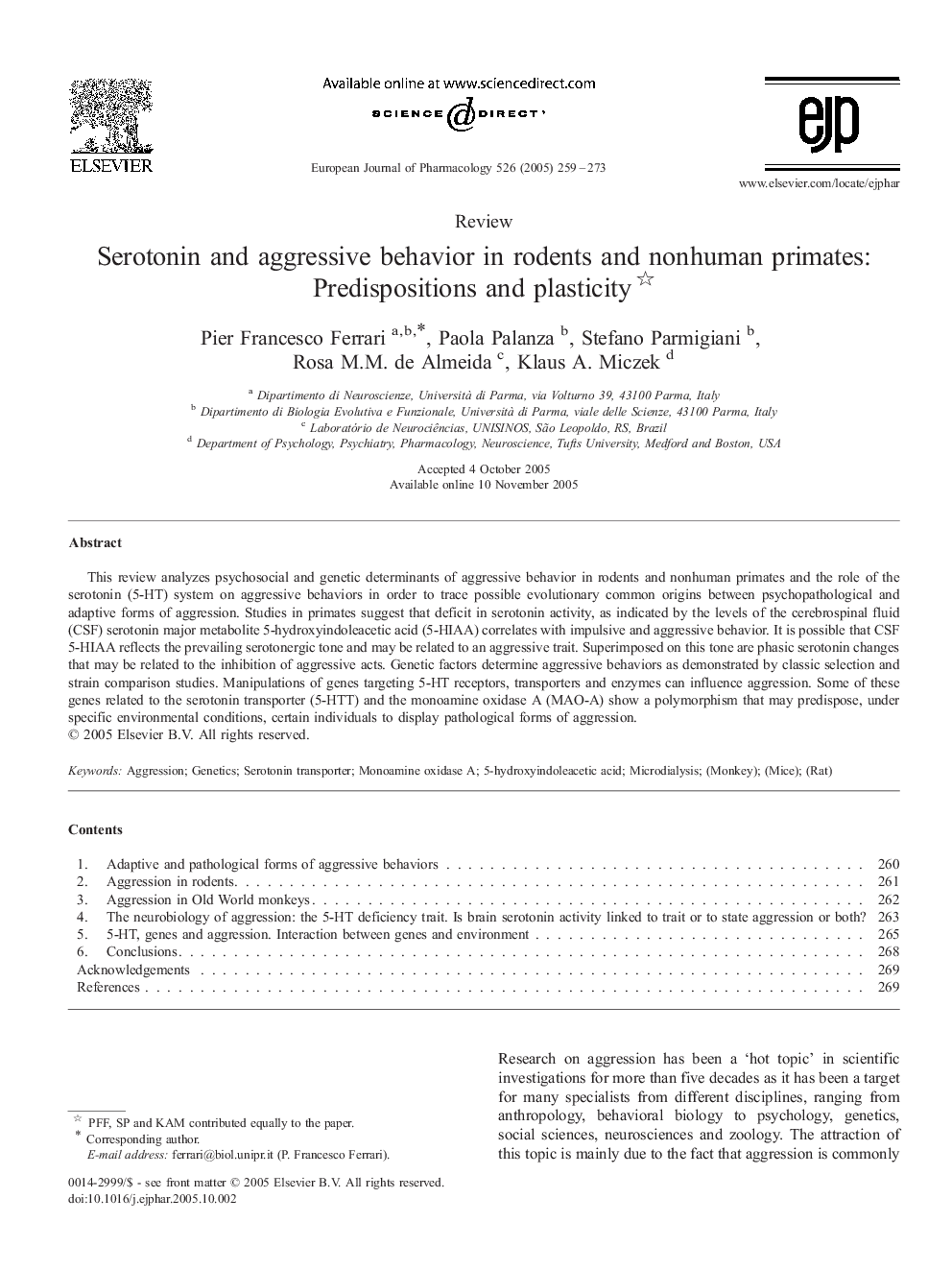| Article ID | Journal | Published Year | Pages | File Type |
|---|---|---|---|---|
| 9920974 | European Journal of Pharmacology | 2005 | 15 Pages |
Abstract
This review analyzes psychosocial and genetic determinants of aggressive behavior in rodents and nonhuman primates and the role of the serotonin (5-HT) system on aggressive behaviors in order to trace possible evolutionary common origins between psychopathological and adaptive forms of aggression. Studies in primates suggest that deficit in serotonin activity, as indicated by the levels of the cerebrospinal fluid (CSF) serotonin major metabolite 5-hydroxyindoleacetic acid (5-HIAA) correlates with impulsive and aggressive behavior. It is possible that CSF 5-HIAA reflects the prevailing serotonergic tone and may be related to an aggressive trait. Superimposed on this tone are phasic serotonin changes that may be related to the inhibition of aggressive acts. Genetic factors determine aggressive behaviors as demonstrated by classic selection and strain comparison studies. Manipulations of genes targeting 5-HT receptors, transporters and enzymes can influence aggression. Some of these genes related to the serotonin transporter (5-HTT) and the monoamine oxidase A (MAO-A) show a polymorphism that may predispose, under specific environmental conditions, certain individuals to display pathological forms of aggression.
Keywords
Related Topics
Life Sciences
Neuroscience
Cellular and Molecular Neuroscience
Authors
Pier Francesco Ferrari, Paola Palanza, Stefano Parmigiani, Rosa M.M. de Almeida, Klaus A. Miczek,
